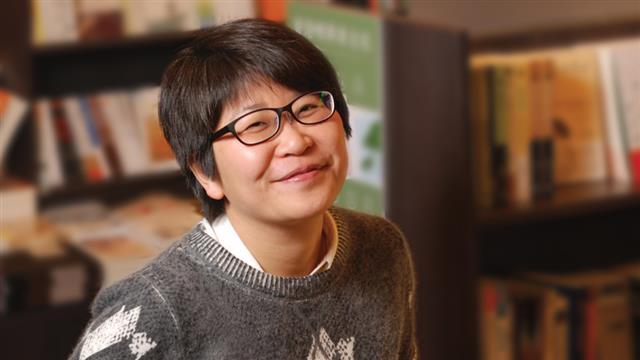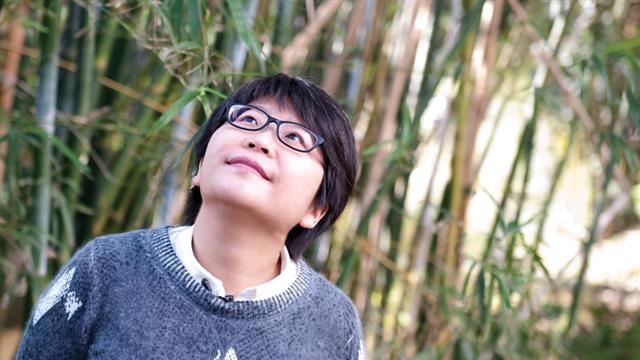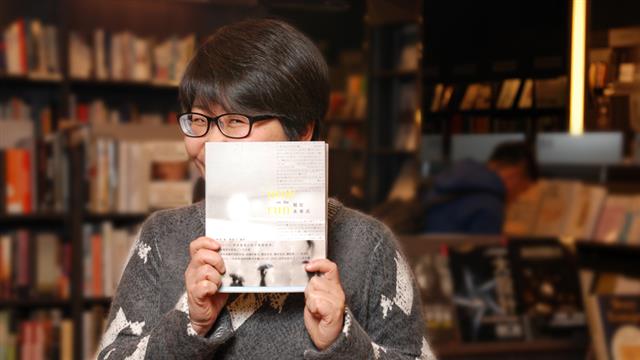You have been so full of creative energy in the last year or so. First a film, now a novel. Why so?
We all have the need to express ourselves and communicate with others. It's all the more natural for me, a teacher in journalism and communication, to have this energy, passion and curiosity for creative pursuits. During the past two years, I felt the urge to express some feelings through film and novel, and hence, the two pieces of work.
What prompted you to shoot a film like The Vintage?
Several years ago, I thought of giving myself a special birthday present. Instead of craving something materialistic, I examined what unachieved childhood dreams I had. To be a film scriptwriter or a director has long been on my wish list, so I told myself I would shoot a film. It's always easier said than done. I was so busy with my work that nothing happened after a year and soon it was another birthday. I made up my mind that it had to be done. In the following year, I spent all my weekends and holidays producing the film and finally gave birth to it.
Would you like to talk about the CUHK elements in The Vintage?
I completed my undergraduate studies at CUHK and have strong emotional bonds with my alma mater. I have worked here for several years, and I find some common anxieties and frustrations among my students. The most detectable is they don't know what to do with the autonomy and freedom at this stage of their lives after fighting hard for so long to enter university. People always encourage you to go for your dream, but, what if you don't even know what your dream is? Based on real encounters with people I know, I wrote the script which contains a lot of reflections on this issue by me and my students. CUHK was chosen as the background without much debate. Pardon my favouritism; CUHK has the most beautiful campus in Hong Kong, not only in terms of the scenery, but also the unsophisticated elegance and the unique ambience.
Is there anything autobiographical in the novel Now on the Run?
2014 has been an eventful year. I believe that many people felt the same as I did: powerless, anxious and suffocated. Creativity gives room for imagination and offers comfort. One evening in June, I was so fed up and depressed by the news. I turned off the television, turned on the computer and started to write the first chapter. If a man was given five chances for time travel, what choices would he make? Being entangled in the tension between individuals and society, what decisions would he make, and what reflections would he have? Working all these out consumed much of my energy, and served to distract me from the even more fictional and ridiculous reality. The plot and my personal experience share nothing in common, only that the protagonist is a freelancer, and I also worked freelance for a long period of time before working at CUHK.
Did you deliberately create the Hong Kong sentiments in the novel?
Many Hongkongers lament over the fading out of all things Hong Kong which used to be. Consciously or unconsciously, I did put in a lot of the Hong Kong elements I cherish to the novel, e.g., the Cantonese language, the streets, my favourite cha chaan tiang food, my favourite places, and songs by Eason Chan. To a certain degree, it’s like freezing the environment and sentiments of Hong Kong in a particular moment and space in a time capsule. I’m glad that I managed to record my most endearing memories of Hong Kong in words.
Prof. Joseph Chan's photography has played a vital role in the published novel. How was the collaboration?
The novice independent publisher from Taiwan suggested combining text with images. Without a second thought, Professor Chan came to my mind. His photos usually give the viewer enormous room for imagination—great for my novel which is full of dialogues between reality and imagination. I sent him an e-mail from Holland, together with my manuscripts. He came up with lots of brilliant ideas about how photos and text could complement each other. After several rounds of discussion, we settled on a large collection of photos for the art designer and editor to choose from, with the aim of adding substance to the novel.
You are one of the core planners and organizers of the University's I•CARE Programme. Why is it worth your time?
The greatest attraction of I‧CARE is teachers and students who love CUHK and who are never short of fascinating ideas. Take the cottage here as an example, it is rooted in a primitive idea of building a structure on campus to echo the theme of the 2014 University Lecture on Civility with Taiwanese architect Kris Yao as the guest speaker. We talked to Prof. Thomas Chung of the School of Architecture, and without lengthy discussions, he and his students constructed this poetic cottage from scratch. Collaborations like this are so inspiring and encouraging. We will never feel tired of trying out different possibilities to open up new horizons and enrich the experience for people here on campus. You may say I'm addicted to I‧CARE.
You've spent a semester in Amsterdam. How was it like?
I was there on sabbatical leave. It's just like being an exchange student there. I had the chance to exchange ideas with people in another university. I was able to live my days leisurely for four months in another country, which gave me ample time and space for thinking. I met many interesting people and identified a new direction for research. I rested enough to refresh myself. Sabbatical leave is good and everybody should go for it!




